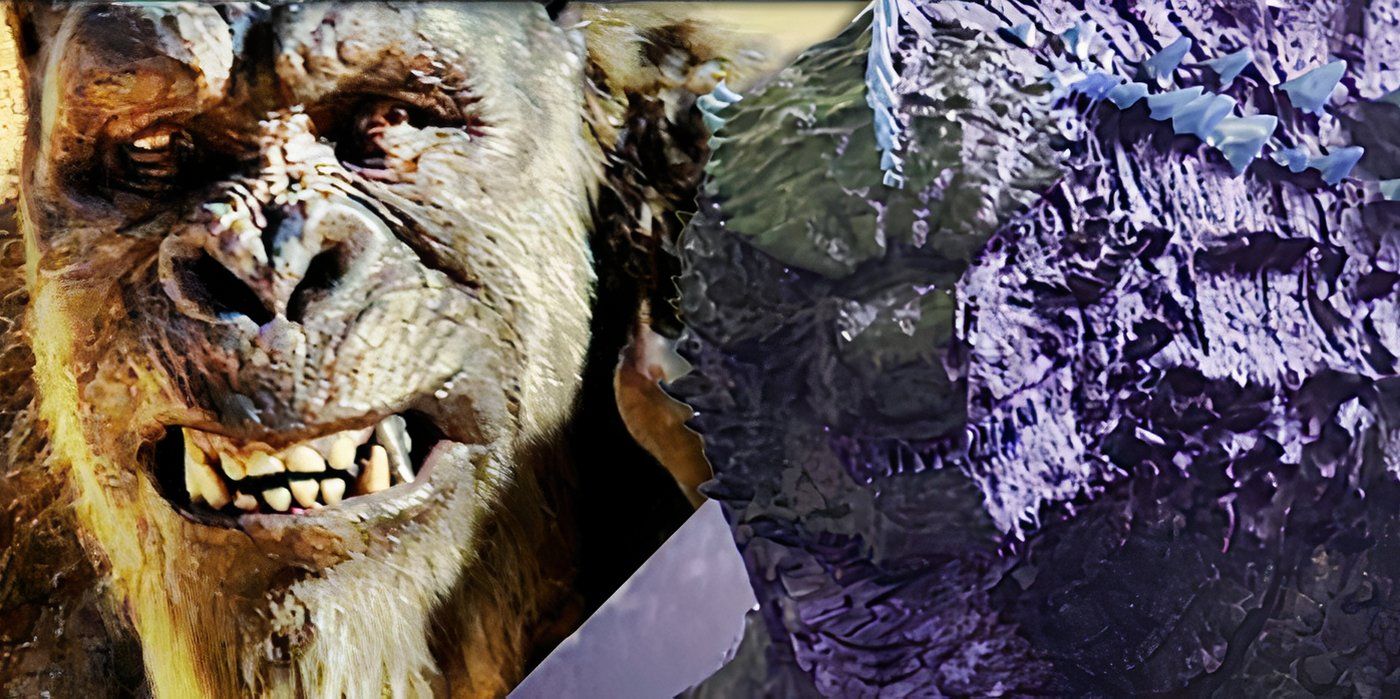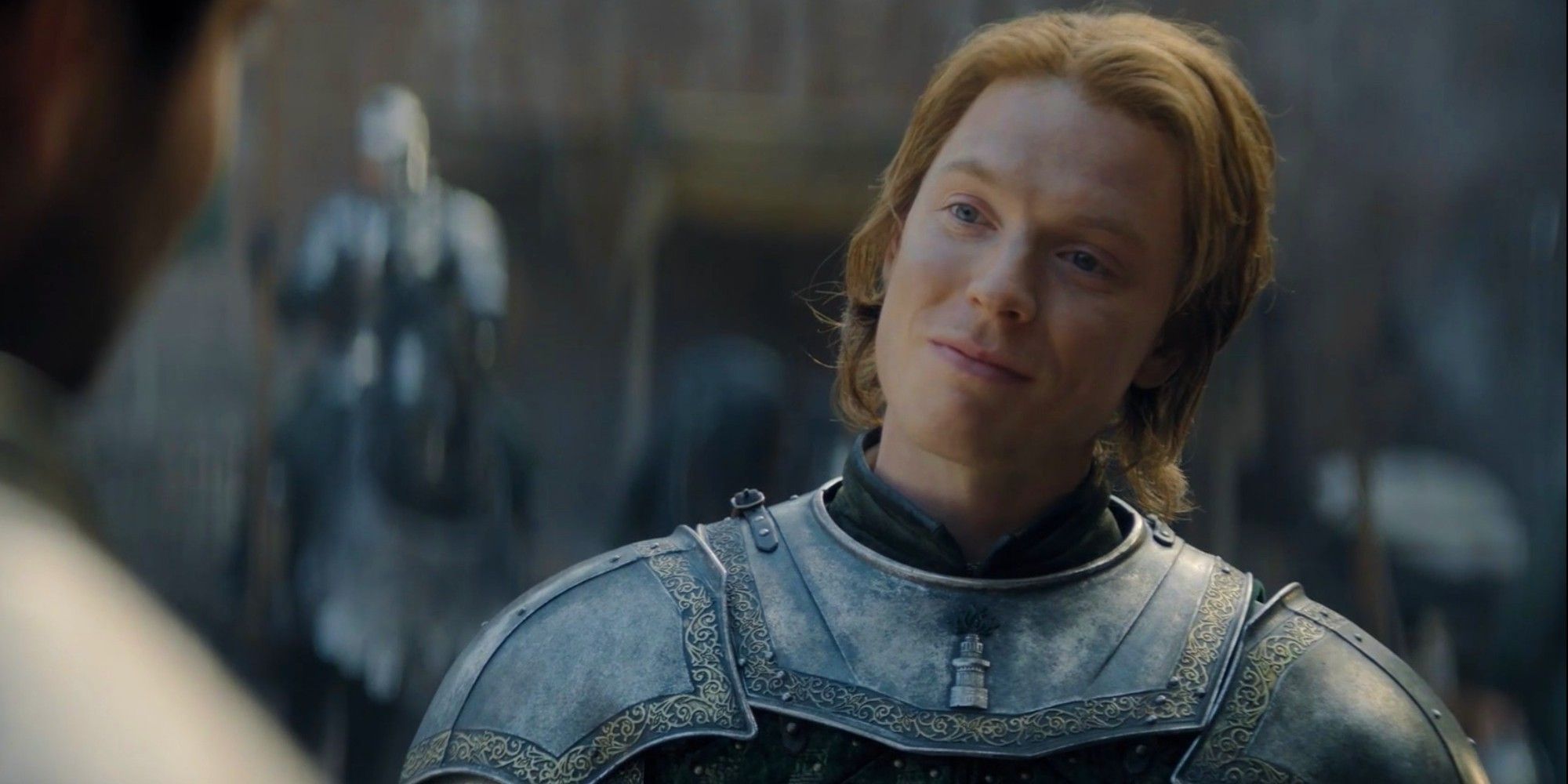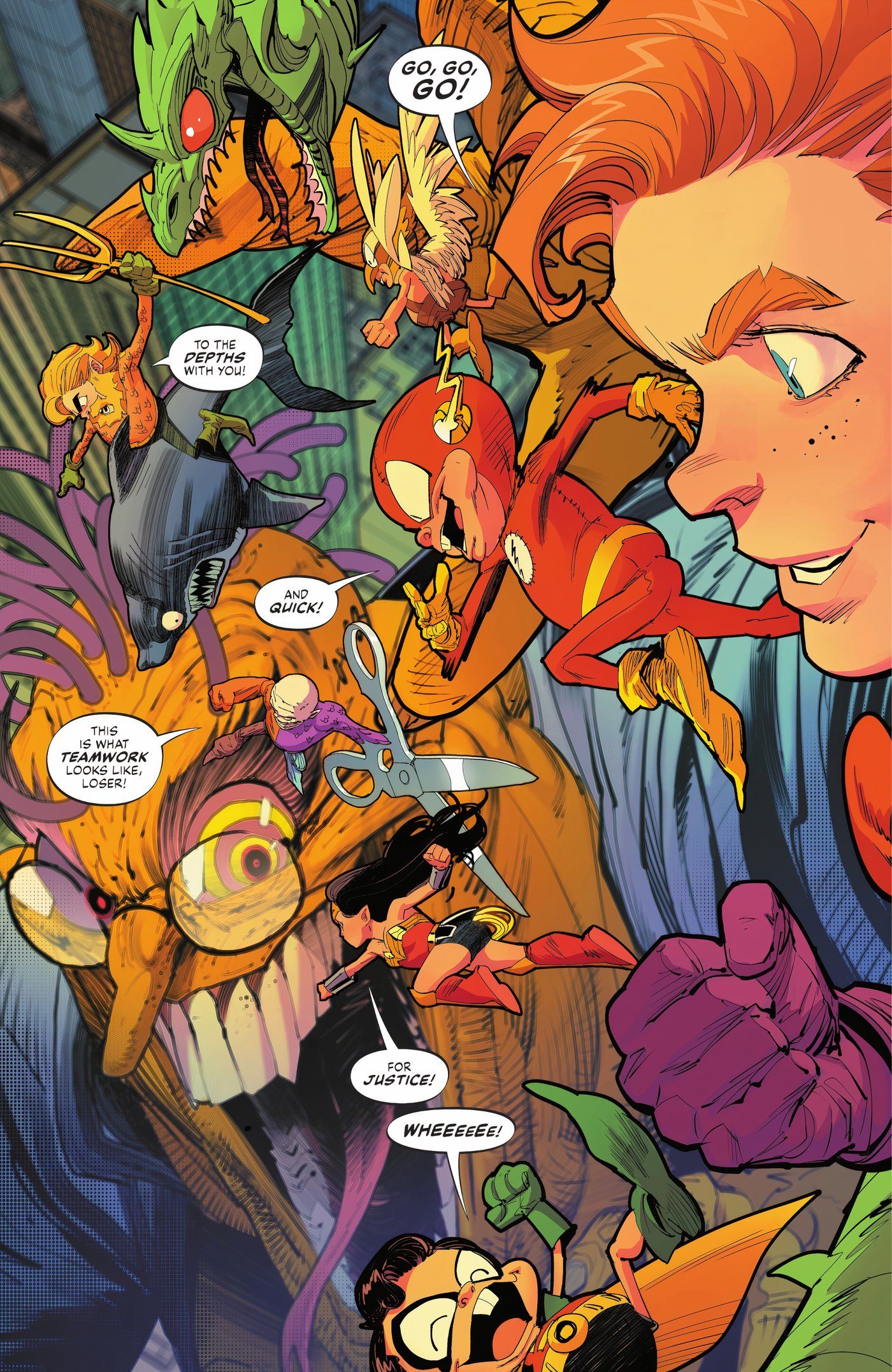For nearly seventy-five years, Beetle Bailey has gently lampooned the U.S. military – though according to creator Mort Walker, the seemingly innocuous, simple comic strip is undergirded by insightful commentary on the nature of the relationship between American citizens and authority. According to Walker, his central character follows the “general rule” that “Americans feel that authority should be questioned.”
In Mort Walker’s Private Scrapbook: Celebrating a Life of Love and Laughter, Beetle’s creator discussed how his strip “has been studied by sociologists for the way authority is presented.” Since its inception – and even in the years following its original author’s passing – Walker’s strip has been beloved for following the trials and tribulations of Bailey, Sarge, and other characters at the Army base known as Camp Swampy.
The interplay between its characters’ lighthearted natures, and their obligations as soldiers, has driven much of Beetle Bailey’s comedy over its long run.
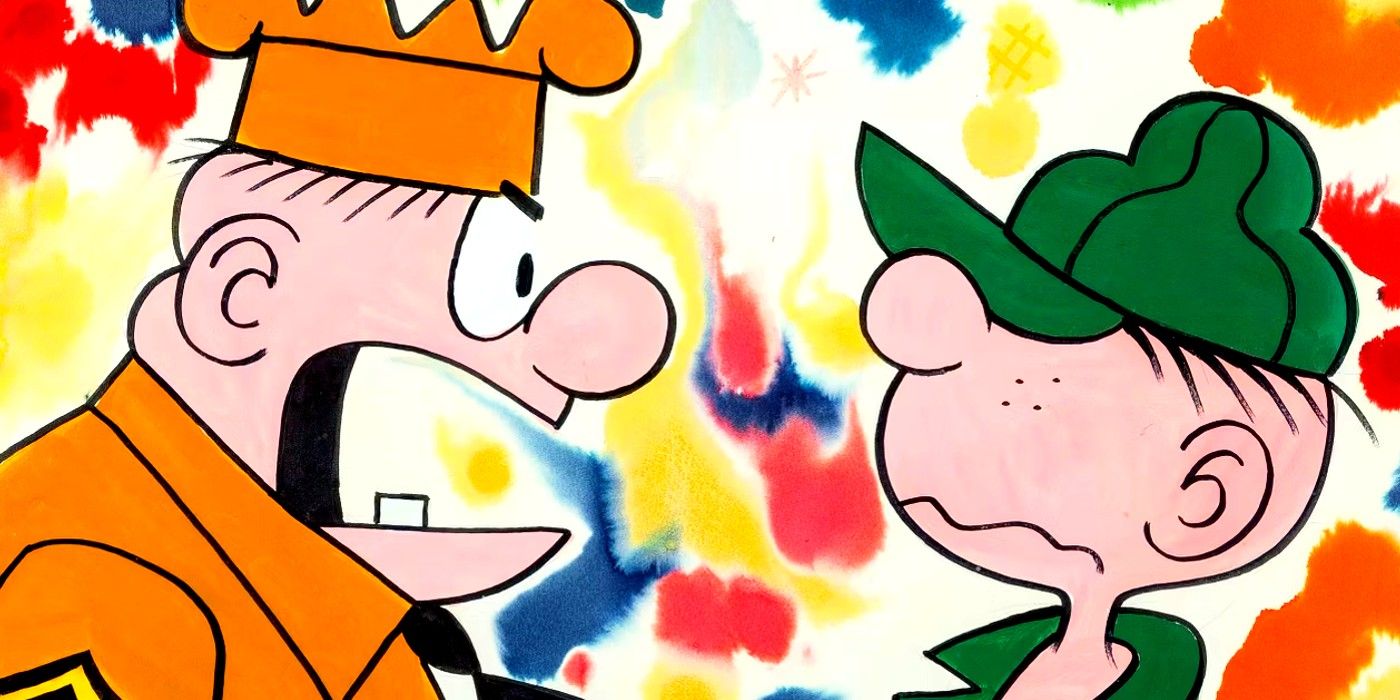
Related
The Army Banning Beetle Bailey Helped Make It a Success (According to Its Creator)
Beetle Bailey is one of the most popular comic strips in American history, and being banned by the Army helped make it a huge success.
“Beetle Bailey” Delivered Daily Doses Of Anti-Authoritarian Humor
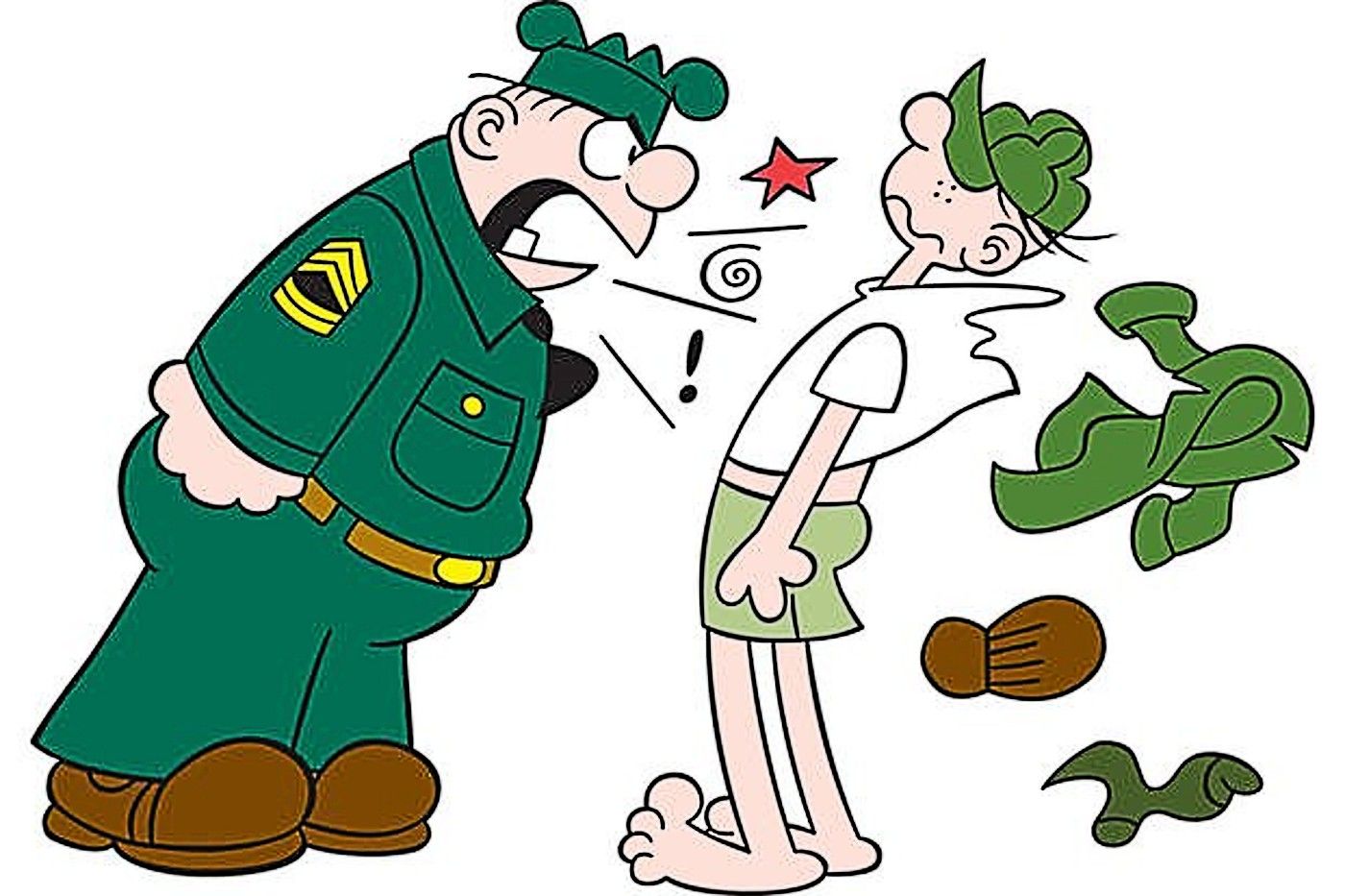
The eponymous solider at the heart Beetle Bailey may not have the name recognition of some of its contemporary syndicated newspaper comics, but his antics have had no less of an enduring effect on American culture as Charles Schulz’ Peanuts, or Jim Davis’ Garfield. While not as openly iconoclastic Gary Larson’s The Far Side, Mort Walker’s Beetle Bailey was motivated, however subtly, by its own instinct toward social commentary, as Walker revealed in the Private Scrapbooks collection. According to the author, critiquing and resisting authority are core American cultural institutions, no less than the army is itself.
“As a general rule, Americans feel that authority should be questioned, not blindly followed,” Walker wrote, “and people in authority accept this resistance as an inalienable right.” He contrasted this with his view of European and Asian societies, while also adding an interesting piece of context:
“In Italy, there is a soldier comic strip, where the private always ends up in jail for things Beetle does routinely.”
As Walker put it, this critical distinction between his portrayal of authority, and that of a European comic with the same concept, reflected the wider disparity between the American perspective on authority and the prevailing approach in other countries.
Mort Walker Used Humor To Undermine Hierarchy In “Beetle Bailey”
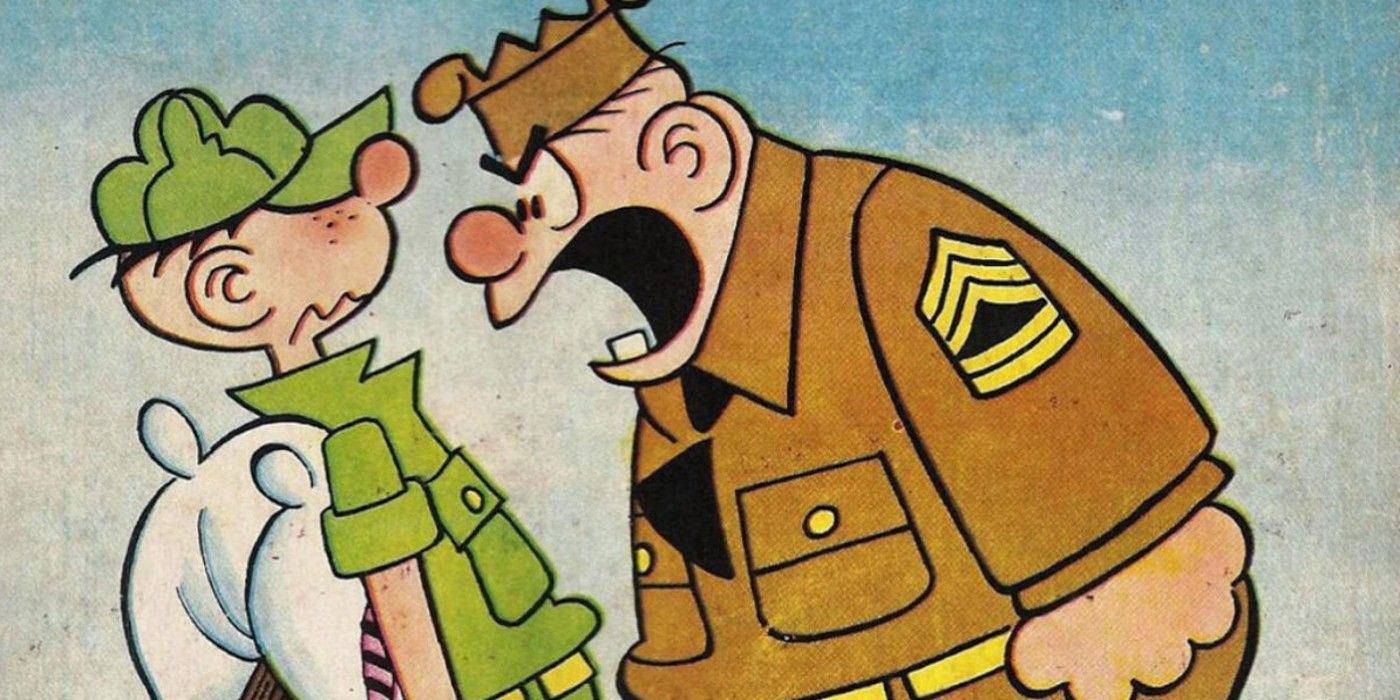
Though it may not have felt like it on the surface, Mort Walker’s Beetle Bailey delivered American readers a daily dose of anti-authority humor for decades. From the formative years of the Cold War, through the Kennedy assassination, Vietnam, Watergate, and every other major event in American history since the mid-point of the 20th century, Beetle Bailey has encouraged readers to push back against authority, even if they often didn’t realize this was the comic’s message.
Mort Walker’s critique of authority may not have been scathing, or even overt – certainly, it wasn’t shouted at the top of his lungs like a punk rock song. Nevertheless, his humor consistently undermined hierarchy, and institutions like the military, for decades. In Walker’s conception, this made it a fundamentally American project, one in which both sides of the dynamic were represented. “Beetle and Sarge play the game,” Walker wrote in Private Scrapbooks. “Sarge doing his job by opposing authority, and Beetle doing his job by resisting it.” In this light, Beetle Bailey will continue to be studied by sociologists and literary scholars for decades to come.
